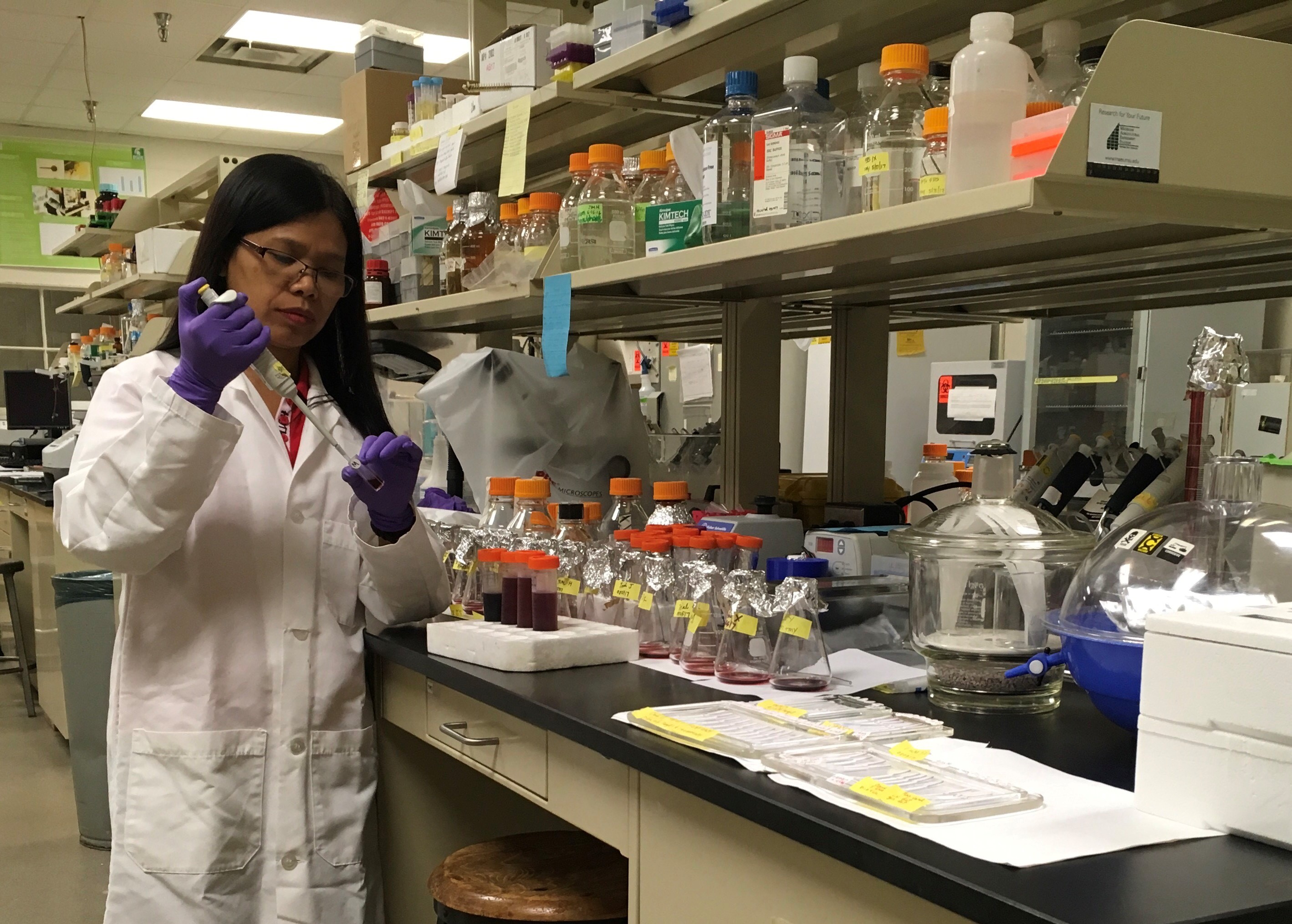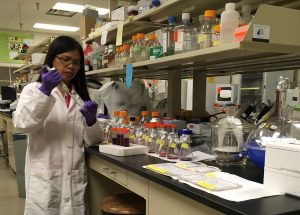
Chemistry Prof Undertakes Research in US on Early Detection of Dengue Virus
A professor at the Chemistry Department is currently at the Michigan State University (MSU) in the United States completing her research on a cost-efficient biosensor that targets early detection of the dengue virus in blood and mosquitoes.
The research of Asst. Prof. Flora M. Yrad, which concludes this month, focuses on the development of lateral flow biosensor for detection of dengue RNA, particularly in a tropical country like the Philippines where dengue is a major public health problem affecting all regions. Her research received a grant from United States Agency for International Development-Science, Technology, Research and Innovation for Development (USAID-STRIDE) program.

“To date, there are no medicines available to specifically cure dengue,” Asst. Prof. Yrad said, citing an earlier study that had been conducted on dengue. “Early confirmation is critical for epidemiological surveillance and better patient management and treatment,” she added.
Asst. Prof. Yrad seeks to address this and work around the lack modern instruments and the high test costs that limit the capability in the Philippines to deliver accurate and rapid diagnosis for dengue. Her goal is visual detection that simplifies techniques by using lateral flow biosensors that “provide analytical formats that allow the performance of portable, rapid and low-cost diagnostics with user-friendly, specific, sensitive, robust and low limits of detection.”
And her research has yielded positive results. Asst. Prof. Yrad revealed that she has developed a paper-based biosensor that detects dengue type 1 under controlled laboratory conditions.
According to the World Health Organization (WHO) “there are four distinct, but closely related, serotypes of the virus that cause dengue”. The development in the research of Asst. Prof. Yrad pertains to the first serotype.
WHO explains that “recovery from infection by one (serotype) provides lifelong immunity against that particular serotype”, and “subsequent infections by other serotypes increase the risk of developing severe dengue.”
Asst. Prof. Yrad said that the proposed biosensor for dengue protection is “a promising technology that can make great impact in the healthcare needs of the Filipino community.” Results of her research will be presented during the 2018 Annual International Meeting of the American Society of Agricultural and Biological Engineers slated July this year in Detroit, Michigan.
Throughout her research at MSU, Asst. Prof. Yrad works closely with her supervisor, Dr. Evangelyn C. Alocilja, Program Director of the Nano-Biosensors Lab at Department of Biosystems and Agricultural Engineering, where she did her tests and findings. Her supervisor, Dr. Alocilja is the recipient of 2003 Outstanding Sillimanian Award in Biosystems Engineering who obtained her undergraduate degree in Chemistry from Silliman.


